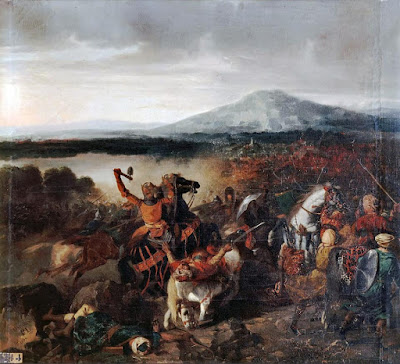 |
| Luigi Pirandello |
Quotes:
"Oh why...I asked myself desperately,...does mankind toil so to make the apparatus of the living more and more complicated? Why this clatter of machines? And what will man do when machines do everything for him? Will he then realize that what is called progress has nothing to do with happiness? Even if we admire all the inventions that science sincerely believes will enrich our lives (instead they make it poorer, because their price is so high), what joy do they bring us, after all?" – Luigi Pirandello, The Late Mattia Pascal [Il fu Mattia Pascal, 1904], p. 102-103, New York Review Books, 2005.
"The real cause of all our sufferings, of this sadness of ours—do you know what it is? Democracy, my dear man. Yes, democracy; that is, the government of the majority. Because when power is in the hands of a single man, this man knows he is one and must make many happy; but when the many govern, they think only of making themselves happy, and the result is the most absurd and hateful of tyrannies. Of course! Why do you think I suffer? I'm suffering because of this tyranny masked as freedom..." – Luigi Pirandello, The Late Mattia Pascal [Il fu Mattia Pascal, 1904], p. 121-122, New York Review Books, 2005.




















